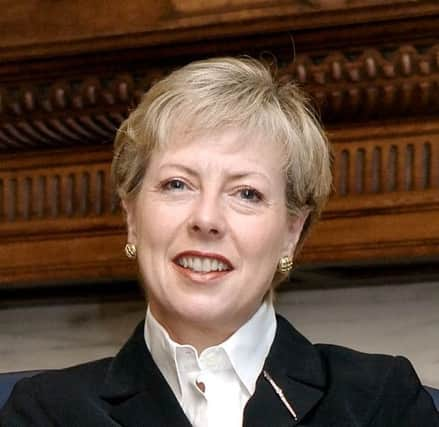Leaders: Judge at head of abuse inquiry brings credibility


The Scottish Government had a clear choice in front of it in recent weeks as it faced the fall-out from the two resignations from Scotland’s independent public inquiry into the abuse of children.
The inquiry, launched in March, was to be a thorough and painstaking investigation into the inhumane and cruel abuse inflicted on children and any systemic failures which allowed it, in a range of institutions including care homes, churches and independent boarding schools, going back decades.
Advertisement
Hide AdAdvertisement
Hide AdIt was right forthe government to set up the inquiry to deal with the allegations of abuse and maltreatment which simply would not go away and continued to resurface when people who had been victims found the courage and felt the time was right for them to speak out.
The people whose childhoods were blighted have never had justice or closure and the memories of what they endured while the perpetrators were free to continue such actions against more children was something they have lived with throughout their adult years.
At long last it seemed that the victims would be listened to and a forensic root and branch investigation carried out to flush out the people and practices responsible.
But then the government got itself into difficulty when Susan O’Brien QC, the inquiry’s chairwoman and independent expert Professor Michael Lamb both resigned, citing ‘micro-management’ by ministers and claiming their fact-finding remit was being constrained.
Ms O’Brien said she could not reassure the public that the inquiry would be conducted independently of government and said allegations of her making inappropriate comments had been taken out of context.
Prof Lamb complained that “repeated threats” to the inquiry’s independence had undermined it, leaving it floundering and “doomed before the first witness was heard”.
The fact that the inquiry was about abuse in institutions made it a matter of utmost necessity that the government was seen to be some distance from it, not interfering, and allowing experts to do their job.
As it was, the inquiry, which was meant to “shine a light into the dark corners of the past,” was tarnished.
Advertisement
Hide AdAdvertisement
Hide AdTo be successful it had to be credible in the eyes of victims and the public.
The government had to think carefully and come up with a solution which would get it out of the mess which had unfolded, and in so doing, regain the confidence of the victims and people who had watched something which started with such promise, come to a near abrupt end.
Lady Smith is a highly experienced judge and her appointment is to be welcomed. She comes from a profession which is independent of government and fircely defensive of that position.
But most importantly, by her appointment the Scottish Government have signalled they will not seek to influence the inquiry. This is a really positive signal. Hopefully the inquiry is back on course.
Peaceful protest not caravans
With Saltires fluttering in the breeze, the ‘people’s vigil for Scotland’s independence’ complete with caravans, tents and a collection of determined independence supporters, and a few dogs, beside the Scottish Parliament has almost become a new visitor attraction since its establishment last year.
Using the weight of the law to remove the IndyCamp protesters cannot be taken lightly. For a democratic society to survive protest has to be allowed.
Those who have been disappointed by Lord Turnbull’s decision that the protesters must abandon the site may conclude that the law has been used to protect Parliament.
But while the Scottish Parliament regularly sees protests at its doors – from farmers to teachers to fishermen – these people go on their way after a few hours, having made their point and been interviewed about their various grievances.
Advertisement
Hide AdAdvertisement
Hide AdThe difference with the independence protest, which is also close to the Palace of Holyroodhouse and Arthur’s Seat, is that it has turned into a camp with caravans and barbecues, establishing itself as part of the landscape.
It is not acceptable to allow people to put caravans wherever they want and call it a protest. Nor is it an infringement of human rights.
Of course there will be those who may say the protesters have a valid case and their views raise issues that will be debated for years to come.
But the conclusion can only be that they have gone about it the wrong way. Their eviction is not about blocking democratic protest, but rather it is about removing something that has turned into an occupation.